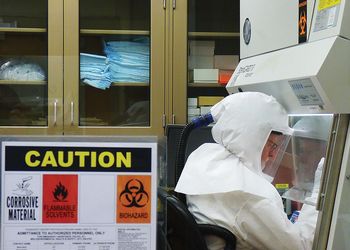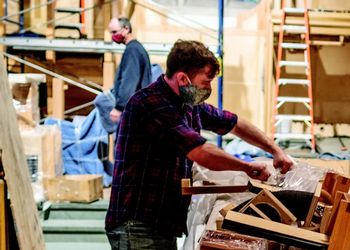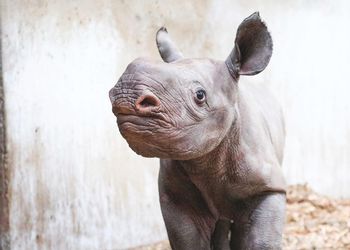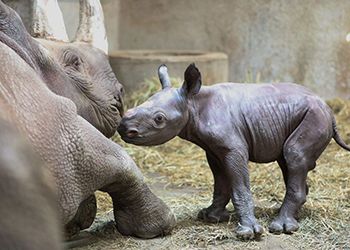COVID-19 News
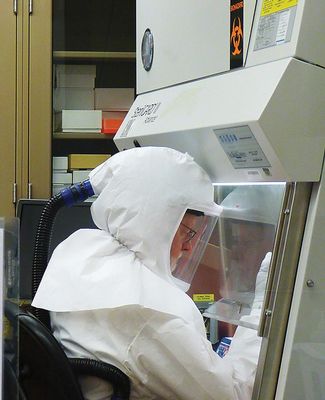
COVID-19 News
January 11, 2021Vet Lab Processing Up to 1,000 COVID-19 Tests Daily
With the capacity to analyze 1,000 human tests daily, the MSU Veterinary Diagnostic Laboratory is an important component in MSU’s COVID-19 Early Detection Program. Uniquely positioned to step in and support COVID-19 testing requirements, the VDL established new procedures with the help of leaders at Olin Student Health Center and MSU’s Biomedical Laboratory Diagnostics program.
“The laboratory has proven invaluable to the state of Michigan when we have faced threats to animal health. Now, we can provide support as we face perhaps the greatest human health threat of our lifetimes,” said VDL’s Interim Director James Averill. “We’re here and we’re ready.”
VDL is currently processing COVID-19 tests collected at campus buildings with results available to MSU Health Care in 24 hours.
Learn more: go.msu.edu/vet-lab
MSU Pilots New App in Fight Against COVID
MSU has a new tool in the fight against the spread of COVID-19. The MI COVID Alert app can notify users if they have recently been in close contact with someone who has tested positive for the virus.
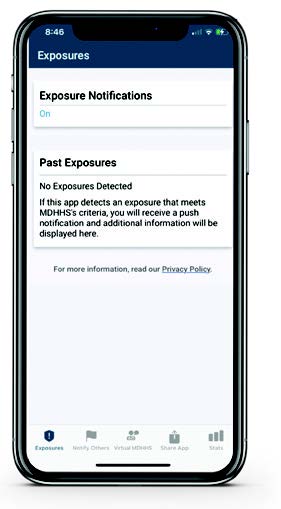
The app is the result of a partnership between MSU, the Michigan Department of Health and Human Services and the Ingham County Health Department. The app is free to download on Android and IOS devices.
Thanks to high adoption during the pilot at MSU, MDHHS recently expanded the program to the entire state. MI COVID Alert uses Bluetooth technology to detect nearby phones that are also running the app. When a person tests positive for COVID-19 in the state of Michigan, they receive a pin number from the health department that allows them to send an anonymous push notification to alert others who they have had contact with and are using the app.
Learn more: go.msu.edu/mi-app
Improving Risk Assessment of Infectious Diseases
MSU’s Department of Biosystems and Agricultural Engineering (BAE) is leading a project to increase knowledge and availability of quantitative microbial risk assessment (QMRA) models among professionals in biomedical science, microbiology, public health and engineering backgrounds.
In comparison with other approaches like epidemiology, QMRA models show where pathogens are and how to avoid contact with them. “They also help us determine what controls, like engineering technology or policy changes, can be implemented so people don’t get sick,” said project co-director Jade Mitchell.
The new project, funded by the National Institutes of Health, will focus on mentoring, developing online coursework and cyberinfrastructure, and training faculty who have been keenly interested in QMRA.
Since the COVID-19 outbreak, Mitchell has seen a growing and immediate need for people to assess risk in many different environments.
FACULTY VOICE
“Food insecurities can emerge at different points along the supply chain and we have to be ready to respond at each stage. With COVID-19, the issue wasn’t the absence of food in the supply chain; it was a baffling simultaneous combination: the disconnect between supply and demand led to a lot of food waste at certain points, and massive food insecurities in others. Let’s set an example for the upcoming generation of supply chain professionals about the expanded value we offer — making social welfare a focal point in their education, work and lives.”
- Yemisi Bolumole Associate Professor Supply Chain Management, Broad College of Busines
Learn more: go.msu.edu/food-supply


